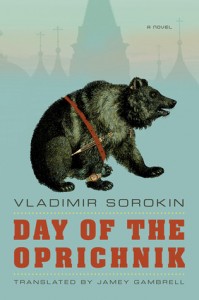 Title: Perv: The Sexual Deviant in All of Us (Goodreads)
Title: Perv: The Sexual Deviant in All of Us (Goodreads)
, 2013
Pages: 288
Buy: Amazon, Book Depository (or visit your local Indie bookstore)
Jesse Bering, award-winning columnist and psychologist, wants to talk about perversions. We are deviants in one form or another; we may not be paedophiles, or into voyeurism and exhibitionism but there maybe something in our past we rather not discuss. In Perv, Jesse Bering looks at the psychology of having a fetish outside the norm and compares it to the difficulties he faced growing up in the 70s and 80s as a gay man.
This is an interesting book; it doesn’t condone sexual abuse or committing a sex crime. This rather looks at the psychology of paraphilia’s and makes the reader think about it in a different light. Just because someone has a fetish for something unusual doesn’t make them any less human. Bering looks at cultural thought, imprinting, conditioning and compares them to his own struggles as a homosexual.
While he looks at things like zoophiles, paedophiles and bestiality, he also looks at other perversions. Cross dressing, bondage, sadism and tries to get the reader to accept people as human. Just because they have this desire doesn’t mean they are committing crimes, these people are struggling and dealing with the guilt. As Bering states, sometimes they often feel like they have three options in life; depressive sleep, being institutionalised or suicide. Neither of these solutions seems effective at solving the problem.
I thought I had a decent understanding of the GSM (Gender and/or sexual minority or LGBT if you prefer) lifestyle but this just throws so many questions. I’m not comparing GSM with paedophilia, I’m just saying that the psychology of sex is so complicated and how can you treat people with paraphilia without a decent grasp on it. Especially a paraphilia that was so rare that no one bothered to find the Greek name for it.
There wasn’t much about paraphilia’s as I wanted; I was hoping to learn more about these ‘out of the norm’ sexual preferences. Not because I want to make fun of them, the whole thing is just fascinating. My favourite paraphilia discovered from this book is auto-plushophilia (look it up). I think this book looked at paraphilia’s in a new light, I hope this will help me understand them a little better and make it easier to accept them. I now think the Diagnostic and Statistical Manual of Mental Disorders approach to paraphilia’s are very dated and destructive. If psychologists don’t approach the treatment of these people struggling in a more accepting and human way then these people will never get the help they are seeking.

 Title: A Sport and a Pastime (
Title: A Sport and a Pastime ( Title: The Remains of the Day (
Title: The Remains of the Day ( Title: Day of the Oprichnik (
Title: Day of the Oprichnik ( Title: The Unbearable Lightness of Being (
Title: The Unbearable Lightness of Being (